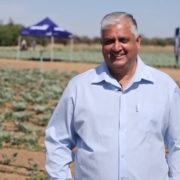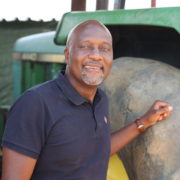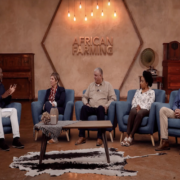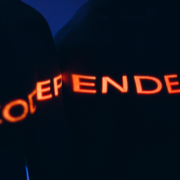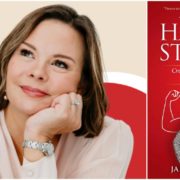Generate your own power now – African Farming
Around the world, photovoltaic systems have proven to be sustainable investments with excellent returns on investment when properly designed, installed and maintained.
The energy and power deficit at national level is a stumbling block for many farms and businesses, while the rising cost of electricity exacerbates an already difficult environment. Photovoltaic systems can alleviate both problems with energy prices that are competitive and stable in the long-term.
Choosing the right partner to walk this path with is extremely important if you want to get the best service, quality infrastructure and return on your investment.
Tagex Energy is a South African solar power, storage and energy company who engineer, procure and construct solutions for solar power systems with or without storage for a variety of markets ranging from agriculture to commercial and large industries.
This company believes that the future of the power supply industry is a streamlined, integrated approach. This includes the acquisition of Tier 1 panels, as rated by Bloomberg New Energy Finance (BNEF) and imports directly from the manufacturing source to our warehouse infrastructure. To complete the integrated approach, long-term financial modelling, system design and construction, maintenance and management of the solar asset are all done in-house.
The sums must add up
One area that is given a lot of consideration as part of Tagex Energy’s design philosophy is to ensure that the client does not over-capitalize on their investment. Tagex Energy takes several factors into account, such as local municipal regulations as well as each client’s individual requirements.
A lot of emphasis and time is spent on getting the correct balance between capital cost and savings to achieve positive cash flow as early as possible (in most cases starting in year 1). In cases where feedback is allowed and credited, the models become more favourable.
Financial institutions play a significant role in helping residential and commercial clients to achieve their embedded generation goals with system efficiency and warranty playing critical roles in a banks willingness to finance these solutions. Here, too, Tagex Energy is leading the way by being listed as a priority partner at most of the leading commercial banks in South Africa.
Important factors considered by banks when financing photovoltaic systems are manufacturer warranties (including installation practices that do not void warranties), component life expectancy and nett cash flow of the consumer after installation. A positive score in all three categories results in a significant short and long-term benefit to the client. With a 25-year performance guarantee on the panels and a 10-year guarantee on inverter and battery systems, Tagex Energy ticks all of the boxes both during and after the expected finance term from the bank.
Best solutions
Tagex Energy offers various power generation and storage solutions ensuring best practice and suitability for each client’s requirements while striving for maximum financial benefit to the client. The company’s solutions are:
COMMERCIAL AND INDUSTRIAL GRID-CONNECTED SOLAR SYSTEMS. These systems synchronize and operate parallel to the utility grid to reduce the quantity of energy purchased from the grid.
COMMERCIAL AND INDUSTRIAL HYBRID ENERGY STORAGE SYSTEMS. With these systems, solar, battery and grid energy sources are combined to provide power to the customer in the most cost-effective way. Determining factors are the customer’s needs and available resources.
RESIDENTIAL HYBRID ENERGY STORAGE SYSTEMS. With an integrated system that includes inverters, solar panels and batteries, homeowners can reduce disruptions from load-shedding, insulate themselves against future electricity tariff increases and reduce their overall dependence on the local grid.
One point of contact
With the company’s wide range of services and system configurations, consumers get a single point of contact for all their solar energy needs. The solutions provided by Tagex Energy are of the highest international standards.
The company’s knowledgeable technicians have been hand-picked for their exceptional attention to detail and skill. Tagex Energy’s extensive platforms and approach to projects, construction and product and project development ensure the perfect solutions for agricultural, commercial, domestic and industrial applications.
Web: tagexenergy.co.za; e-mail: info@tagexenergy.co.za
Here’s what you can expect in African Farming this week!
This week on African Farming, Tony Ndoro meets commercial farmer Loretta Visagie and our panel experts chat about good agricultural management principles. Tune in to African Farming, this Thursday at 19:00 on Mzansi Wethu, DStv channel 163.
African Farming panel experts chat pests and parasites – African Farming
African Farming host Tony Ndoro chats about pests and parasites with Head of Agribusiness at Standard Bank Nico Groenewald, along with MD of AFGRI’s Lemang Agricultural Services Praveen Dwarika with Dr Mpho Maja from the Department of Agriculture, Land Reform and Rural Development and a representative of Vleissentraal and Caryn Shacklock, Afrivet Veterinarian, Technical and Laboratory Manager.
How To Know What the Customer Wants, It Must Be A Priority

by Josefa Massinga
Let’s talk about the importance of customer feedback. But what does feedback mean and what is its importance in our business? Being an entrepreneur it is not just about selling and profiting. As entrepreneurs we offer products or services that are sold with the aim of meeting a demand. Consumers have needs and buy what they think is important to them. Because we are in this area of selling products, it is very important to hear or know what they want.
As entrepreneurs we are still in a phase of affirmation in the market, a market that is very competitive, we have to get into the habit of seeking from our customers the “answer”, that is, “return”, of the services for us, provided to them. When looking for feedback we can see the importance of our business, how we are proceeding and the level of acceptance by our target audience, and we can also make an assessment if we continue in it or not.
It is very common when we think about setting up a business that we don’t think about our customers. That is we first think about making money, not much about if we will have a consumer for the service we intend to offer. The entrepreneur needs to understand the customer and their needs, have a business vision based on the consumer and their needs.
In my opinion, it is a challenge to find out what customers want. Even if the entrepreneur does not have a physical store, we can use the media and digital platforms in order to reach more people in a specific way, that is, in addition to reaching their customers. It is possible to better understand how people on social media respond to certain stimuli, even those who are not my customers, but who are my ‘target’. That is the person who could buy my product, and someone who just doesn’t buy it because they don’t go to my store, but it’s a profile of customer that would buy it”. In person, people tend not to reveal their likes, but on social media they are easier to interpret, so it is an effective way to extract feedback that is productive for the company.
Nowadays we have witnessed a great competition between companies as consumption habits are constantly changing. I think every entrepreneur needs to always be on the lookout and conduct monthly feedback surveys, and follow up on their customers daily. It is extremely dangerous for us not to realize that what happens on a day-to-day basis will one day change certain behavior in the long term, and it is necessary to always be following the habits of our customers.
We have to be careful and attentive when seeking feedback from our customers and consumers, for example when we think the customer is wrong, or our product and service is perfect. Many times people think that the client did not understand the proposal, but if the client did not understand your proposal, the problem is yours because he will buy from someone else.
In this case, the best solution is to listen to what the customer has to say and think about what to do to improve, perhaps there are communication problems or even price problems. “If the customer is not buying because the price is high, can I offer something at a lower cost to him?,” ask yourself.
The solutions can be diverse, such as creating a new proposal, or even changing the target audience and raising the price even more. One thing is for sure: customers need to be heard and their behavior must be monitored, as the decision to buy a product or not is up to him alone.
Como saber o que o cliente quer, deve ser prioridade do negóçio
by Josefa Massinga
A importância do retorno do cliente. Mas afinal, o que significa feedback ou retorno e qual sua importância no nosso negócio? Ser empreendedor não é apenas vender e lucrar. Nos empreendedoras oferecemos produtos ou serviços que são vendidos com o objetivo de atender a uma demanda. Os consumidores possuem necessidades e compram o que lhes parece importante para eles, por estarmos nesta àrea de venda de produtos é aí muito importante ouvirmos ou sabermos o que eles querem.
Nos como empreendedores que somos e por estarmos ainda numa fase de afirmação no mercado, mercado este que e bastante concorrido, temos que ter o hábito de buscar junto dos nossos clientes a “resposta”, ou seja, “retorno”, dos seviços por nos prestados a eles.
Ao buscarmos os Feedbacks poderemos ver a importância do nosso negócio, como estamos a proceder e o nivel de aceitação, por parte do nosso público alvo e também podemos fazer uma avaliação se continiuamos nele ou não.
E muito comum ao pensarmos em montar um negócio não pensarmos nos nossos clientes, isto é nos primeiros pensamos em ganhar dinheiro e, não muito se teremos consumidor para o serviço que pretendemos oferecer. o empreendedor precisa entender o cliente e as necessidades dele, ter a visão do negócio a partir do consumidor e das suas necessidades
No meu entender , é um desafio descobrir o que os clientes querem. Mesmo que o empreendedor não tenha uma loja física podemos nos socorrer dos midias e das plataformas digitais de forma a alcançar mais pessoas de forma específica, ou seja, além de atingir seus clientes,“É possível entender melhor como as pessoas nas mídias sociais respondem a determinados estímulos, até mesmo quem não é o meu cliente, mas que seja meu ‘targget’, ou seja uma pessoa que poderia vir a comprar meu produto, e só não compra porque não passa na minha loja, mas é um perfil que compraria”.
Pessoalmente as pessoas tendem a não revelar seus gostos, mas nas mídias sociais elas são mais fáceis de ser interpretadas, sendo assim, é uma forma eficaz de extrair um feedback que seja produtivo para a empresa.
Nos dias de hoje temos assistido a uma grande competição entre as empresas, os hábitos de consumo estão em constante mudança.
Acho que todo o empreendedor precisa ficar sempre atento e realizar pesquisas de feedback mensais, e fazer o acompanhamento diário dos seus clientes.
É extremamente perigoso para nos não percebermos que o que acontece no dia-a-dia vai um dia alterar determinado comportamento a longo prazo, e é necessário estar sempre acompanhando os hábitos dos nossos clientes.
Temos que ter cuidado e atenção ao buscar mos feedback com os nossos clientes e consumidores, ao acharmos que o cliente está errado e que nosso produto ou serviço é perfeito. “Muitas vezes as pessoas acham que o cliente não entendeu a proposta, mas se o cliente não entendeu a sua proposta, o problema é seu pois ele vai comprar de outro”, explica.
Neste caso, a melhor solução é ouvir o que o cliente tem a dizer e pensar no que fazer para melhorar, talvez existam problemas de comunicação ou até de preço.
“Se o cliente não está comprando porque o preço é alto, será que eu tenho como oferecer uma coisa a um custo mais baixo para ele?”, questione-se.
As soluções podem ser diversas, como criar uma nova proposta, ou então até mudar, de público alvo e subir ainda mais o preço. Uma coisa é certa: os clientes precisam ser ouvidos e seus comportamentos devem ser acompanhados, pois a decisão de comprar ou não um produto, cabe apenas a ele.
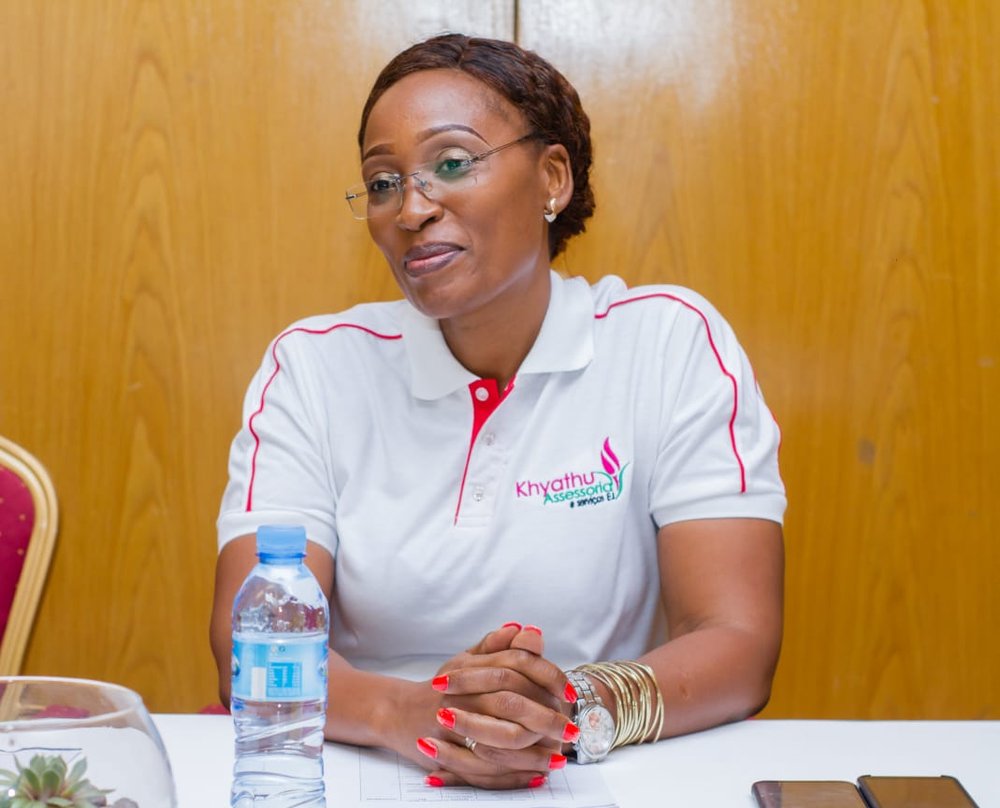
Josefa Amélia Massinga is the founder of Florista Flor Khyathu in Maputo, Mozambique. Her business, which opened in 2015, was inspired by the memory of her young niece Khyathu Massinga, who lost her life two years earlier. This store was Josefa Massinga’s first enterprise, bringing her passion for flowers to a suburban area. As the only flower shop in this area at the time, she has since built up a loyal following of customers and brand recognition. She has since opened another branch called Khyathu Assessoria where in addition to flowers, customers can also access a range of other services such as floral decorations for vehicles, churches and events for special celebrations.
More articles by Josefa
Dear Entrepreneur, you can take a day off — Lionesses of Africa

by Brigette Mashile
Many of my peers struggle with taking a day off. There are many reasons why, but it’s taboo to just not work for 24 hours. We fail. Especially in an era where all communication is tied to the phone, we keep it with us every minute of the day. You would have to switch it off the entire day to have a day off. And then, find a way to switch off your brain. Then, you need a day or two to actually get over the constant anxiety of wondering how it is really going without you!
A lot of us are ‘one man’ head offices, or at best we have one assistant. Some are lucky to have a bigger team, but they still have their nails in every detail of the business. So much so that they cannot let the team work without them; they want to know that everything is churning as it should. You live in fear that it will all fall apart in your absence. The same team you have tirelessly trained for months, would fail you!? Rest my love. Here are your options:
1. You can take the day off, yes there is a cost and a risk
It really is just logic. If you make a cup of coffee, then you have a cup of coffee to drink. If you don’t make it, you don’t have a cup of coffee to drink. Then you have to consider your options, for example getting someone to make the coffee for you so you have a cup to drink. Or even better, get a machine to do it. Both of these have a cost.
The risk is the business you MIGHT miss if you don’t go to work that day. I said MIGHT. And this is what creates the anxiety all day. You know your business better than all of us, you know which days are new business opportunities, therefore you can plan around this. You can even go further and automate responses for new business to say you will attend them on a certain day. There are ways.
2. If you don’t take the day off…. there is an even bigger cost and risk
This cost, according to me is much BIGGER. If you are aware that you are exhausted, which we all know you are, you need to REST. The cost of not resting is possibly the end of your business. No jokes. Think about it. The risks of where the exhaustion will influence most in your body is the anxiety you should prioritize. Exhaustion manifests in may different ways, it can be in blood pressure, weight gain/loss, hair loss, brain damage, mood swings, etc.
If you don’t rest, you could just get a flu that demands you to nap for 10 days like me. This is the least problematic way your body could communicate its exhaustion with you; I mean after all the yawning and body pains. We ignore the body pains huh…everyday. We take pain medication, everyday to numb the reality. If you are unlucky, you might collapse. All because you don’t want to rest.
The risk? If you are napping for 10 days, you are not productive for 10 days. The one day off looks better now doesn’t it? I have lived this, there is nothing you can do when you have cold chills, a blocked nose, a soft headache, and dry throat for 7 days. All your clients annoy you; all your business seems like a hindrance, and you just want your mommy. And, my friend, should you attempt to cut the ten-day flu rest to 6… you shall pay with 10 extra days from day 7! Imagine a 16-day anxiety fest from forceful rest!
3. You can plan ahead
That word. PLAN. Look, planning is challenging. Things happen everyday that challenge your perfect plans, and sometimes we fail at our own plans. The truth is your plan has to keep evolving with life.
In this situation, you need to plan to rest. Find a day or week at BEST and plan your work in a way that allows you to be off for a week. Pull work into the weeks before or after to open that one week for you. Notify your business partners about the plan ahead, make them comfortable about your absence. Notify all active order clients that you will not be reachable that week, make them comfortable that your absence is not a disturbance to the success of their order.
The cost of this action is the time you have to invest in catching up or pushing forward on work to be able to have a free week. You might even have to give more responsibilities to your assistant for that week you are absent.
The risk? I honestly cannot think of one. The result of effective planning is effective risk management.
Lastly, you can be like me. Just sleep for an entire day and take each challenge while in bed. NO lies. There are days where I know I need to stay in bed. Days where I know I need silence. And I take it. How? My phone is on vibrate, my text message notifications are off, email notifications are off. The only notifications that are on are bank app payments to ME. Choose happiness LOL! This way, I can spend an entire day without seeing work communication. I can just be quiet. Sounds extreme right? Yes, because I have lived the other side of being in hospital due to exhaustion, stress, and excessive anxiety.
Choose you always. If you need a reason why, your business does not exist without YOU!
I hope you decide to rest for an hour, a day, or a week…if possible, for a month soon. I hope you decide to invest in you by doing nothing for a bit. I hope you choose to be a better asset to your business by adding to your strength. Thank you for coming to my TED talk.
Challenge…

by Mircea Neto
It is a word that everyone knows that has about 39 synonyms and that carries immense meaning, because without realizing it every new day there is a challenge to be faced.
While younger, our biggest challenge is to retain the exclusive attention of our parents, then we start taking the first steps, waking up every day to go to school, being a good student, being the first in the class, finishing training in the right time…
The word challenge is something that is closely linked to human existence, throughout life we are given the idea that the challenge is closely linked to another person and we grow up, we live thinking about others and we never focus on ourselves.
The greatest of all challenges is self-knowledge, if this way of thinking were transmitted to us from an early age, we would realize that the way we structure our life has nothing to do with our true self.
When we start the journey of self-knowledge, we expand the awareness of ourselves and with that, it becomes easier to make choices, acquire emotional intelligence, try new things, and develop self-responsibility more easily. In short, self-knowledge is liberating …
So, liberating that we begin to realize that self-care is an imperative need for women and not an act of selfishness as it has been instilled in us over several generations.
Unfortunately, many women end up having internal conflicts due to the lack of balance in their lives. And it is not because they want to, it is because they do not know how to recognize themselves as a unique being, with wants, dreams and desires, everything that was taken from them hundreds of years ago.
May self-knowledge be part of every stage of growth for us women, so that we can be freer and face the challenge of entrepreneurship and leadership without fear.
I invite each woman to start this very important journey and not be afraid of the discoveries that will come out of this process.
Desafio…
by Mircea Neto
É uma palavra que todo mundo conhece que tem cerca de 39 sinónimos e que carrega um significado imenso, porque sem apercebermo-nos todo novo dia há um desafio a ser enfrentado.
Enquanto mais novas, o nosso maior desafio é reter a atenção exclusiva dos nossos pais, depois passa por começar a dar os primeiros passos, acordar todos os dias para ir a escola, ser boa aluna, ser a primeira da sala, terminar a formação no tempo certo…
A palavra desafio é algo que está intimamente ligada a existência humana, ao longo da vida nos é passada a ideia de que o desafio está estreitamente ligado a uma outra pessoa e crescemos, vivemos a pensar no outro e nunca focamos em nós mesmas.
O maior de todos os desafios é o autoconhecimento, se desde cedo nos fosse transmitida essa forma de pensar, perceberíamos que a forma como estruturamos a nossa vida, em nada tem a ver com o nosso verdadeiro EU.
Quando iniciamos a jornada do autoconhecimento , ampliamos a consciência de nós mesmas e com isso, torna-se mais fácil fazer escolhas, adquirir inteligência emocional, experimentar coisas novas e desenvolvemos com maior facilidade a auto-responsabilidade. Resumindo o autoconhecimento é libertador…
Tão libertador que começamos a perceber que o self care é uma necessidade imperiosa para a mulher e não um acto de egoísmo como nos foi incutido ao longo de várias gerações.
Infelizmente, muitas mulheres acabam por ter conflitos internos pela falta de equilíbrio em suas vidas. E não é porque elas querem, é porque não sabem como se reconhecer como um ser único, com vontades, sonhos e desejos, tudo o que lhes foi tirado a centenas de anos atrás.
Que o autoconhecimento faça parte de cada etapa de crescimento de nós mulheres, para que com isso consigamos ser mais livres e enfrentarmos o desafio do empreendedorismo e da liderança sem medo.
Convido a cada mulher a inicir este percurso tão importante e não ter medo das descubertas que sairão deste processo.

Mircea Neto is both a woman entrepreneur and a doctor based in Angola who has an immense passion for life. She knows that in addition to being a doctor, she has the ability to undertake more business experiences, specifically in the area of catering. The motto that defines he is ‘Le Bon Vivant’ which is also the name of her business. Mircea has spent time in the Kingdom of Morocco, where she was at the Mohamed V University, Soussi Rabat, and where she learned the French language. She graduated from the Rostov-on-Don State University of Medicine in the Russian Federation. The challenge for her now is to undertake her entrepreneurial journey in the restaurant business together with two friends. Mircea is ready to face the battle and achieve her goals.
More articles by Mircea
Are you Co-dependent?
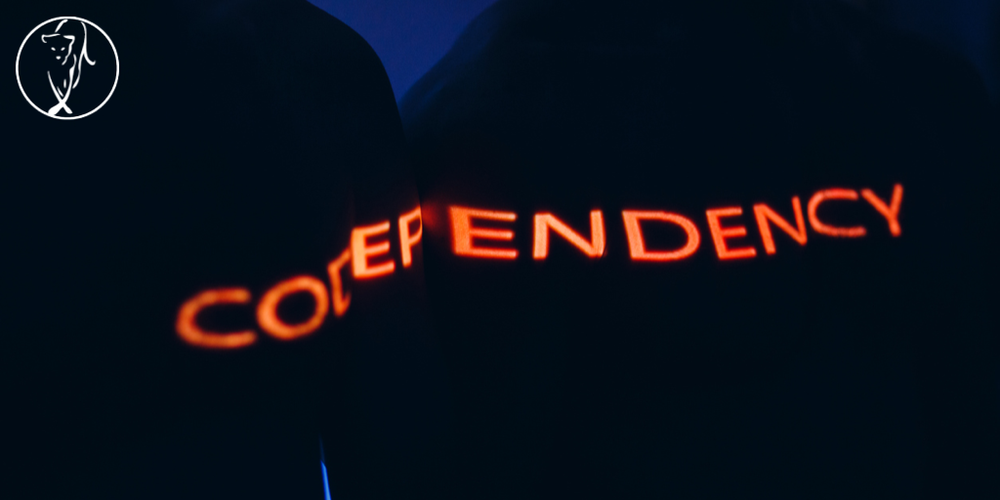
by Kathy Mann
In my corporate life I spent a lot of time mentoring graduates and I can tell you that it was the best part of my experience. Better than the projects that saved the bank millions. I felt appreciated and I knew that I was making a difference. The relationships were mutually beneficial even though the graduates thought that only they were getting something out of it. They were enthusiastic, grateful and eager to learn. I found working with them enormously rewarding.
The example I used above is a healthy relationship, with give and take and both parties benefiting. However, there are relationships that are not so healthy. I’ve written previously about the importance boundaries in order to keep relationships healthy. An unhealthy relationship could also be a co-dependent one.
According to Wikipedia, “Co-dependent relationships are a type of dysfunctional helping relationship where one person supports or enables another person’s addiction, poor mental health, immaturity, irresponsibility, or under-achievement. Among the core characteristics of co-dependency, the most common theme is an excessive reliance on other people for approval and identity.”
I tend to be the reliable one. I tend to be the person who always attends or hosts the important family functions even though I’m struggling with my health and looking after two small children. I wonder if people appreciate how difficult it is to be the strong one all the time. It can be exhausting – an unnecessary drain on my already low energy reserves.
Being strong and being capable means that you can attract people into your life who need help and support. They might appear competent to others but around you they are needy in terms of the reassurance and acknowledgement they require on a regular basis. Of course it’s nice to be needed and I enjoy encouraging people and giving them opportunities for growth. But I don’t enjoy it when people rely on me for their future happiness. It actually makes me quite angry that someone would put that on me.
What kind of friend would I be if I placed my hopes and dreams in the hands of another? I think that’s unfair. I would never burden anyone with my wellbeing psychologically, emotionally, physically or career wise. There are many who feel that it is their manager’s responsibility to nurture their career. Why would you put your future in the hands of another? What guarantee do you have that they know what you want, and will spend their time and energy on getting it right? Surely, people are too busy spending their time and energy on their own happiness pursuit?
The trouble with running a business and being the ‘boss’ is that people think it’s up to you to sort out their career path. They assume that you’ll always be there for them to lean on and to reassure them that they’re fantastic. No. My health has collapsed from a number of factors but one of those is being under the burden of obligation to others for too long.
I now realize that I’m fully entitled to shake off those hanging onto my coat tails and to insist that the relationship changes or ends. I’ve got enough to carry around with caring for a family, getting my health right and finding a new career path. I certainly can’t be propping up other people if I want to get well.
You are responsible for your career. A good manager will keep an eye out for opportunities and help you grow in order to equip you for future roles. But they are not accountable – YOU are! Take action to make your life better instead of lamenting your troubles when people don’t deliver your happiness. Am I the only one who appreciates how ridiculous that sounds?
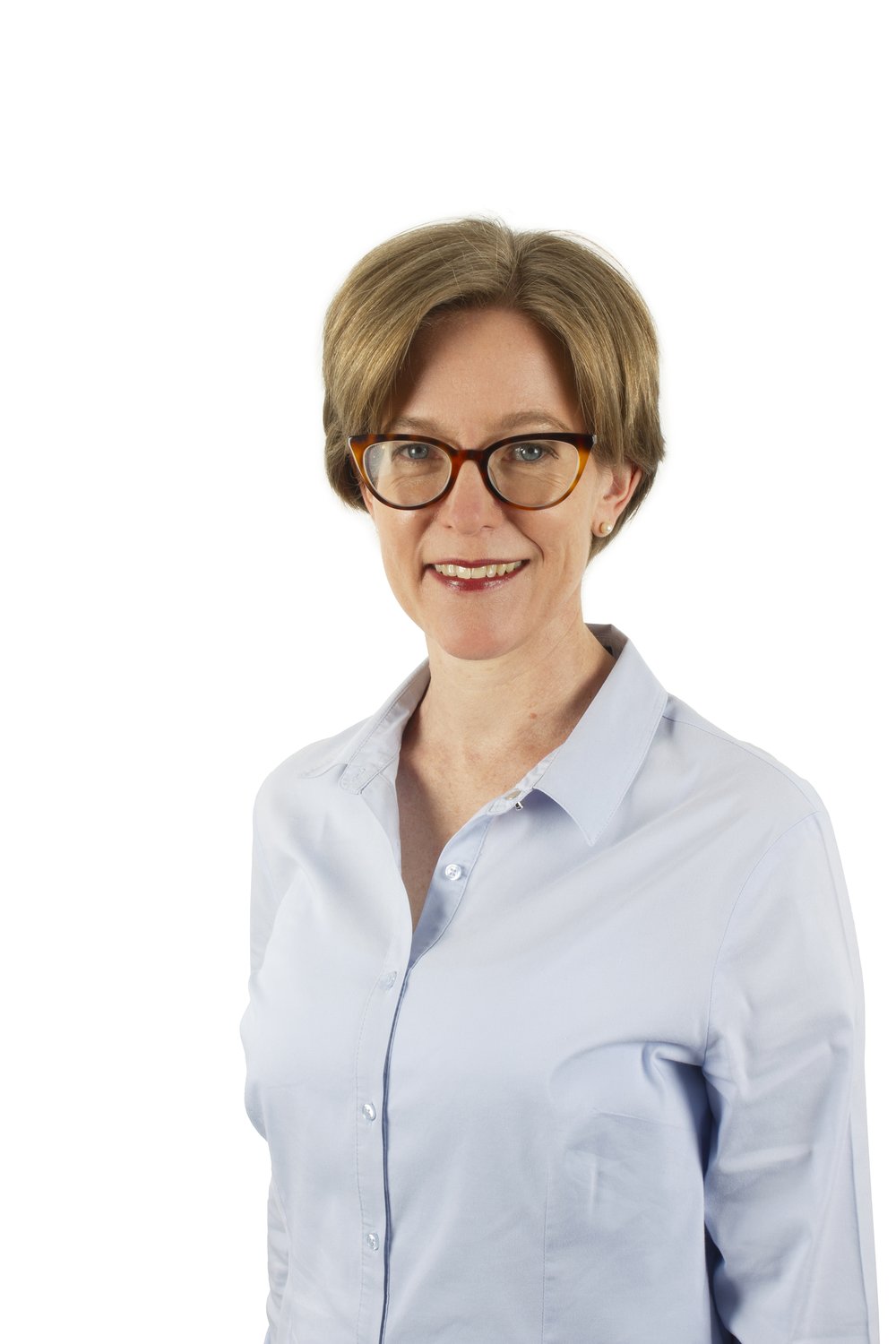
Kathy Mann is an author and speaker with a special interest in stress management. She is passionate about guiding people towards their best lives possible in harnessing their strengths and innate talents. She offers a stress re-framing service, which shifts beliefs to be more constructive around stress. She does this by educating her clients about the variety of stress responses that exist and how we can benefit from them. Kathy’s books Avoiding Burnout and Harnessing Stress are available at major retailers and online at Amazon. She is a wife and mother of two beautiful daughters and lives in Johannesburg, South Africa.
More articles by Kathy
Funeral business fleet: To own or to lease?

Impact Partner Content / Absa
A funeral director’s fleet is one of the drawcards that serves as a key marketing tool. The fast-paced trend-driven industry competes on the wheels that a funeral home owns. An ongoing debate lurks for the funeral director as to which ownership structure best serves their needs – to own or to lease.
Optimal planning of the finance arrangement must be evaluated, and the right leverage cannot be overstated. The Insurance Act of 2017 provides guidance on how the long-term insurance industry must handle premiums collected from members. A funeral director’s 30% of premium income can be used for operational expenses. How the funeral director splits the income received within the business on the operational expense determines operational efficiency and business sustainability in the long term. The intention should be matching the commitment with the revenue generated per year, so that the payments are easily manageable without any cashflow mismatch.
Lease finance and hire purchase are the options for financing the assets that funeral directors must choose from. Traditionally, the majority of funeral directors prefer a hire purchase arrangement where they will own the asset at the end of the last instalment. It is important to highlight the key differentiators of a lease versus a hire purchase finance arrangement. When deciding between leasing an asset or considering a hire purchase as a means of obtaining the item, what does a funeral director need to know?
Key differentiators
Purchase option
The main distinction between leasing versus hire purchase agreements is that, at the end of hire purchase contracts, the customer is the legal owner of the asset. On the other hand, at the end of a lease agreement, the ownership of the asset remains with the lessor (also known as the funder/ the bank).
A hire purchase is a financing solution suitable for businesses wanting to purchase assets without paying the full value immediately. The customer pays an initial deposit, with the remainder of the balance and interest paid over a period. After payment of the last instalment, ownership of the asset transfers to the customer.
Depreciation
The leased asset is capitalised in the accounting records of the lessee, who can claim an expense for depreciation. Depreciation is claimed by the purchaser in a hire purchase arrangement.
VAT payment
With a hire purchase, the full VAT is payable on the asset on day one. The funeral director must make an important cashflow consideration, particularly when a company is exempt from VAT. In a finance lease, VAT cannot be recovered, and the full amount will be capitalised for accounting purposes. In an instance where the VAT has been claimed because the financial lease relates, it is necessary to reduce the lease payments paid to the extent that it includes the VAT that has already been recovered.
When the term agreed on under the financial lease terminates, there will be a further VAT consequence depending on what is done with the assets. Where the assets are retained by the lessor and disposed of by the lessor to a third party, VAT will be charged on the price charged by the lessor, i.e. a bank.
Period
In a hire purchase, the period can range between 48 to 72 months, depending on the purchaser’s preference, whereas in a finance lease, the term is shorter and will range between 36 to 60 months. The shorter lease period caters for flexibility where new models of the vehicle become available, the funeral director should be able to change without the hassles of long-term contracts.
Leasing offers businesses the ultimate flexibility to pick and choose their assets more readily with the budget at their disposal. The funeral industry is a trend-driven business, therefore, the business thrives on agility. Essentially, leasing allows you to use the asset while it is forecast to be useful, to pay for the asset as the benefits of its use are realised, and to plan for its return and replacement without concern over disposal issues. Funeral directors often sit with non-income generating assets that they struggle to dispose of when the vehicles are no longer attractive and operationally functional.
Leasing is often a great business strategy for business that relies on the operational soundness of a well-maintained fleet. Let’s look at the advantages and disadvantages of a finance lease through the lenses of a funeral director:
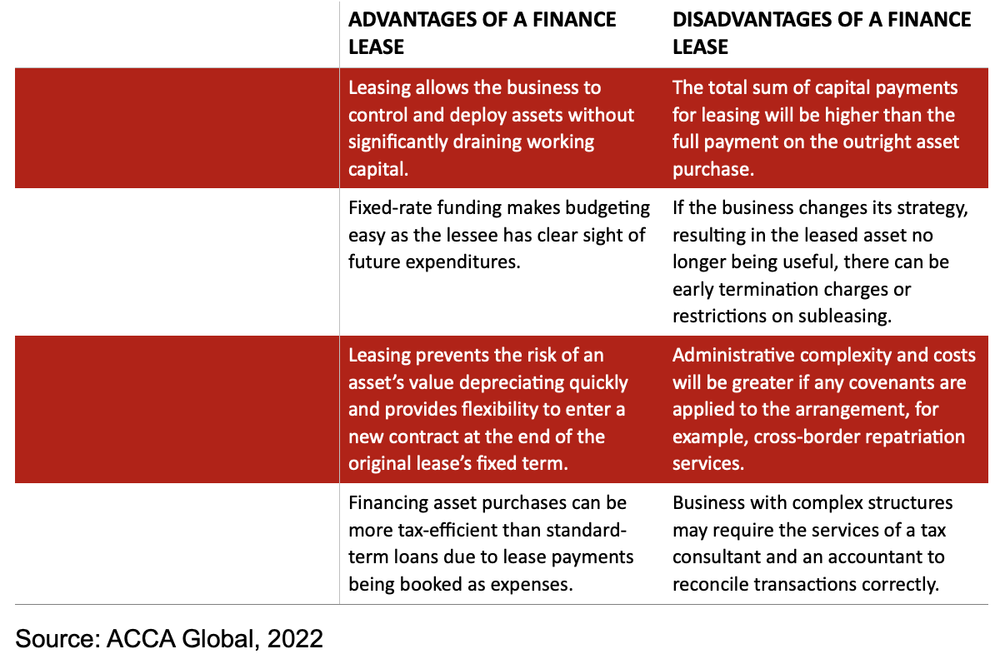
Which Absa products and services are available for funeral directors?
1. Full maintenance leases
The Full Maintenance Lease is a comprehensive full-suite service where, for a monthly rental, you
enjoy the use of vehicles that we source and purchase for your use. We carry the residual value risk
on all vehicles and dispose of them at the end of the contract. We also bear the costs of maintenance.
2. Islamic full maintenance leases
The Islamic full maintenance lease provides finance with a risk-free/guaranteed residual value and
with a risk-free/guaranteed maintenance plan built into the monthly payment. We constantly monitor
your fleet and work with you to keep your rentals in line with vehicle use. At the end of the contract,
you simply return the vehicle.
3. Operating rentals
This is where you enjoy the use of the vehicle for a monthly rental and pay the actual maintenance
expenses incurred. Our technical support and the close management of all maintenance invoices will
ensure that all costs are duly authorised, and unnecessary expenses are avoided. At the end of the
contract, you simply return the vehicle and pay for any extra kilometres that you have travelled.
4. Islamic operating rentals with managed maintenance
The Islamic operating rental with managed maintenance provides vehicle finance with a risk-free/guaranteed residual value, coupled with an outsourced maintenance authorisation and payment process for all vehicle repairs and services, built into the monthly payment.
The products and services offered by Absa Vehicle Management Solutions are geared to service the funeral director who considers leasing. Crucial value-added services geared to support the funeral business include:
-
Fuel management;
-
Insurance and accident management;
-
Roadside mechanical assistance;
-
Tracking and recovery systems;
-
Fines and licences;
-
Open-road tolling; and
-
Driver behaviour management.
To find out more about the funeral industry and available financing solutions, contact Abigail Makhubele on Abigail.makhubele@absa.africa, visit www.absa.co.za, call Absa Vehicle Management Solutions on 0861 600 800, or email franchise@absa.co.za
Absa is an Authorized Financial Services Provider and a Registered Credit Provider NCRCP7

Create Your Dream Life while Enjoying the Journey by Jaime Villalovos — Lionesses of Africa
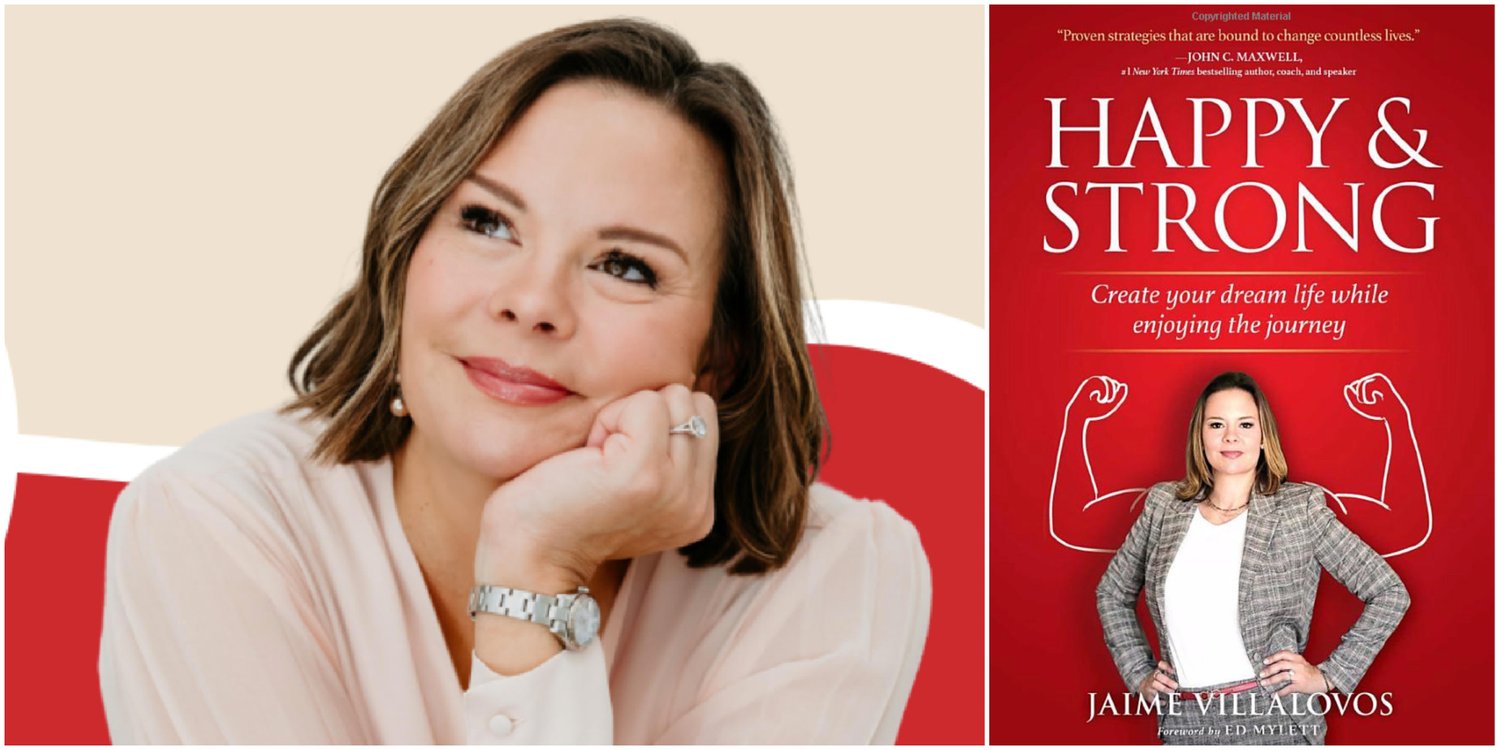
Book Review
In Happy and Strong, Create Your Dream Life while Enjoying the Journey, author Jaime Villalovos provides entrepreneurs with practical and proven strategies on how to achieve success in business without neglecting or sacrificing their families and everything that is important to them.
As a woman entrepreneur, if you struggle with the pressure of balancing business and family, with all that life demands, and you feel spread too thin, then Jaime Villalovos’s new book, Happy and Strong, Create Your Dream Life while Enjoying the Journey is just what you need. Jamie says, if you often ask yourself, Is it all worth it? Can I have it all? And if having it all means a loving, supportive relationship, a successful and impactful business, a strong and united family, and a healthy and fit body and mind, then the answer is yes! In her debut book, Jaime gives you useful tools and methods, not empty promises. Instead of constantly feeling pressured, worried, and unfulfilled, you can begin living a life you absolutely adore.
In Happy & Strong, Jaime will teach you new ways of thinking and behaving. You will learn how to:
– Create a strong and compelling vision for your life.
– Transform yourself into an effective leader.
– Get past some of the traps causing you to plateau.
– Build long-term happiness into your busy schedule.
– Balance everything on your plate and have more fun while doing it.
– Improve your energy levels, diet, and self-care.
– Create a business that is built to last.
Through Jaime’s journey from poverty to success by becoming a top female entrepreneur, you will discover how to win in all areas of your life, and start living the life you desire.
Author Quotes
I’m definitely not an expert at balancing: no one is. I’m still a work in progress. I’m not claiming to be the best parent or the best business guru either. But I have built a successful business as an entrepreneur whilst raising a family. I was making a 7-figure income by the time I was thirty, then continued to grow it as my family grew.
If nothing changes, nothing changes! Ask yourself, am I living the life I have always dreamed of? If not, how badly do you want to change?
Remember, if I can do it, you can as well. I want you to accept that it doesn’t matter where you came from, all that matters is where you want to go.
About the author
Jaime Villalovos grew up in rural Montana in the USA, the oldest of six kids. She became a successful entrepreneur and seven-figure earner before the age of thirty. She is an active philanthropist, serving on the board of the All for One foundation, as well as anti-bullying and children’s wellness organizations. Jaime is also very active in her community. Her passion is to help people reach their biggest goals while finding true happiness. She lives in Southern California with her husband Shawn and their four children. She loves reading, working out, and traveling the world on fun adventures with her family.

